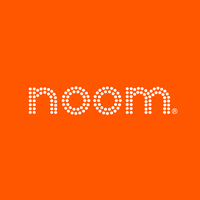The Digital Health Revolution: Merging Data and Care
August 14, 2024, 6:58 am

Location: United States, New York
Employees: 1001-5000
Founded date: 2008
Total raised: $642.85M
The healthcare landscape is shifting. Digital health is no longer a side note; it’s the main act. Companies like Health Catalyst and AstraZeneca are leading the charge, reshaping how care is delivered and experienced. This transformation is driven by technology, data, and a relentless pursuit of efficiency.
Health Catalyst recently acquired Lumeon, a care-management automation startup. This move is more than just a business transaction; it’s a strategic play to enhance care delivery. Lumeon’s Care Orchestration technology automates workflows for care teams. Imagine a conductor leading an orchestra, ensuring every note is played at the right time. That’s what Lumeon does for healthcare teams. It streamlines processes, eases workloads, and ultimately enhances revenue.
Health Catalyst plans to supercharge Lumeon’s offerings with its own AI and analytics capabilities. This combination is like adding rocket fuel to a car. It propels healthcare organizations toward better data processing and improved patient outcomes. The acquisition also opens doors to the U.K. market, expanding Health Catalyst’s reach.
This is not an isolated incident. The digital health sector is buzzing with activity. In June, Health Catalyst acquired Carevive Systems, focusing on oncology. This acquisition aims to improve treatment planning and care coordination. It’s a clear signal that the company is committed to transforming clinical care through data.
Meanwhile, AstraZeneca is carving its own path in the digital health arena. The pharmaceutical giant is not just a player; it’s a game-changer. AstraZeneca is investing heavily in digital health, recognizing its potential to enhance life sciences R&D and patient engagement. The company has established a dedicated team to explore partnerships with digital health startups.
The challenge for AstraZeneca lies in navigating this complex ecosystem. With numerous stakeholders involved—hospitals, physicians, and digital providers—finding common ground is crucial. It’s like assembling a jigsaw puzzle where each piece represents a different player in the healthcare landscape. When the pieces fit together, the result is a clearer picture of patient care.
AstraZeneca’s approach to partnerships is strategic. The company evaluates potential collaborations based on shared objectives and mutual benefits. It’s not just about funding; it’s about building long-term relationships. AstraZeneca’s Catalyst Network identifies promising startups and helps them scale. This support can take many forms, from seed funding to data sharing.
The conversation around digital health has evolved, especially post-COVID. The pandemic accelerated the adoption of technology in healthcare. AstraZeneca has embraced this shift, focusing on personalization and consumerization. Patients now have a louder voice, demanding more from their healthcare providers. This change is akin to a tide rising, lifting all boats in the harbor.
Inequity in healthcare has also come to the forefront. AstraZeneca recognizes the need to address access to care. The company is leveraging data to create insights that maximize impact. This commitment to equity is essential in a world where disparities in healthcare access can mean the difference between life and death.
The digital health investment landscape is vibrant. Companies are pouring resources into innovative solutions. Investors are becoming more discerning, seeking proof of efficacy before committing funds. This cautious approach is a response to the initial rush of investments during the pandemic. Now, the focus is on sustainability and real-world impact.
Health Catalyst’s recent earnings report reflects this trend. The company reported a revenue increase, signaling strong demand for its services. It also signed more new platform subscription clients in the first half of 2024 than in all of 2023. This momentum indicates that healthcare organizations are recognizing the value of data-driven solutions.
As digital health continues to evolve, the role of artificial intelligence (AI) is becoming increasingly significant. AstraZeneca is keenly aware of this shift. The company is adapting its strategies to incorporate AI, ensuring that it remains at the forefront of innovation. The conversations around AI are more nuanced now, focusing on the validity and longevity of models.
The HIMSS AI in Healthcare Forum is just around the corner, showcasing the growing interest in AI applications within healthcare. This event will bring together thought leaders to discuss the future of AI in medicine. It’s a testament to the industry’s commitment to harnessing technology for better patient outcomes.
In conclusion, the digital health revolution is here. Companies like Health Catalyst and AstraZeneca are leading the way, driven by a desire to improve care delivery and patient experiences. The integration of technology, data, and AI is reshaping the healthcare landscape. As we move forward, the focus will be on collaboration, innovation, and equity. The future of healthcare is bright, and it’s powered by digital health.
Health Catalyst recently acquired Lumeon, a care-management automation startup. This move is more than just a business transaction; it’s a strategic play to enhance care delivery. Lumeon’s Care Orchestration technology automates workflows for care teams. Imagine a conductor leading an orchestra, ensuring every note is played at the right time. That’s what Lumeon does for healthcare teams. It streamlines processes, eases workloads, and ultimately enhances revenue.
Health Catalyst plans to supercharge Lumeon’s offerings with its own AI and analytics capabilities. This combination is like adding rocket fuel to a car. It propels healthcare organizations toward better data processing and improved patient outcomes. The acquisition also opens doors to the U.K. market, expanding Health Catalyst’s reach.
This is not an isolated incident. The digital health sector is buzzing with activity. In June, Health Catalyst acquired Carevive Systems, focusing on oncology. This acquisition aims to improve treatment planning and care coordination. It’s a clear signal that the company is committed to transforming clinical care through data.
Meanwhile, AstraZeneca is carving its own path in the digital health arena. The pharmaceutical giant is not just a player; it’s a game-changer. AstraZeneca is investing heavily in digital health, recognizing its potential to enhance life sciences R&D and patient engagement. The company has established a dedicated team to explore partnerships with digital health startups.
The challenge for AstraZeneca lies in navigating this complex ecosystem. With numerous stakeholders involved—hospitals, physicians, and digital providers—finding common ground is crucial. It’s like assembling a jigsaw puzzle where each piece represents a different player in the healthcare landscape. When the pieces fit together, the result is a clearer picture of patient care.
AstraZeneca’s approach to partnerships is strategic. The company evaluates potential collaborations based on shared objectives and mutual benefits. It’s not just about funding; it’s about building long-term relationships. AstraZeneca’s Catalyst Network identifies promising startups and helps them scale. This support can take many forms, from seed funding to data sharing.
The conversation around digital health has evolved, especially post-COVID. The pandemic accelerated the adoption of technology in healthcare. AstraZeneca has embraced this shift, focusing on personalization and consumerization. Patients now have a louder voice, demanding more from their healthcare providers. This change is akin to a tide rising, lifting all boats in the harbor.
Inequity in healthcare has also come to the forefront. AstraZeneca recognizes the need to address access to care. The company is leveraging data to create insights that maximize impact. This commitment to equity is essential in a world where disparities in healthcare access can mean the difference between life and death.
The digital health investment landscape is vibrant. Companies are pouring resources into innovative solutions. Investors are becoming more discerning, seeking proof of efficacy before committing funds. This cautious approach is a response to the initial rush of investments during the pandemic. Now, the focus is on sustainability and real-world impact.
Health Catalyst’s recent earnings report reflects this trend. The company reported a revenue increase, signaling strong demand for its services. It also signed more new platform subscription clients in the first half of 2024 than in all of 2023. This momentum indicates that healthcare organizations are recognizing the value of data-driven solutions.
As digital health continues to evolve, the role of artificial intelligence (AI) is becoming increasingly significant. AstraZeneca is keenly aware of this shift. The company is adapting its strategies to incorporate AI, ensuring that it remains at the forefront of innovation. The conversations around AI are more nuanced now, focusing on the validity and longevity of models.
The HIMSS AI in Healthcare Forum is just around the corner, showcasing the growing interest in AI applications within healthcare. This event will bring together thought leaders to discuss the future of AI in medicine. It’s a testament to the industry’s commitment to harnessing technology for better patient outcomes.
In conclusion, the digital health revolution is here. Companies like Health Catalyst and AstraZeneca are leading the way, driven by a desire to improve care delivery and patient experiences. The integration of technology, data, and AI is reshaping the healthcare landscape. As we move forward, the focus will be on collaboration, innovation, and equity. The future of healthcare is bright, and it’s powered by digital health.
